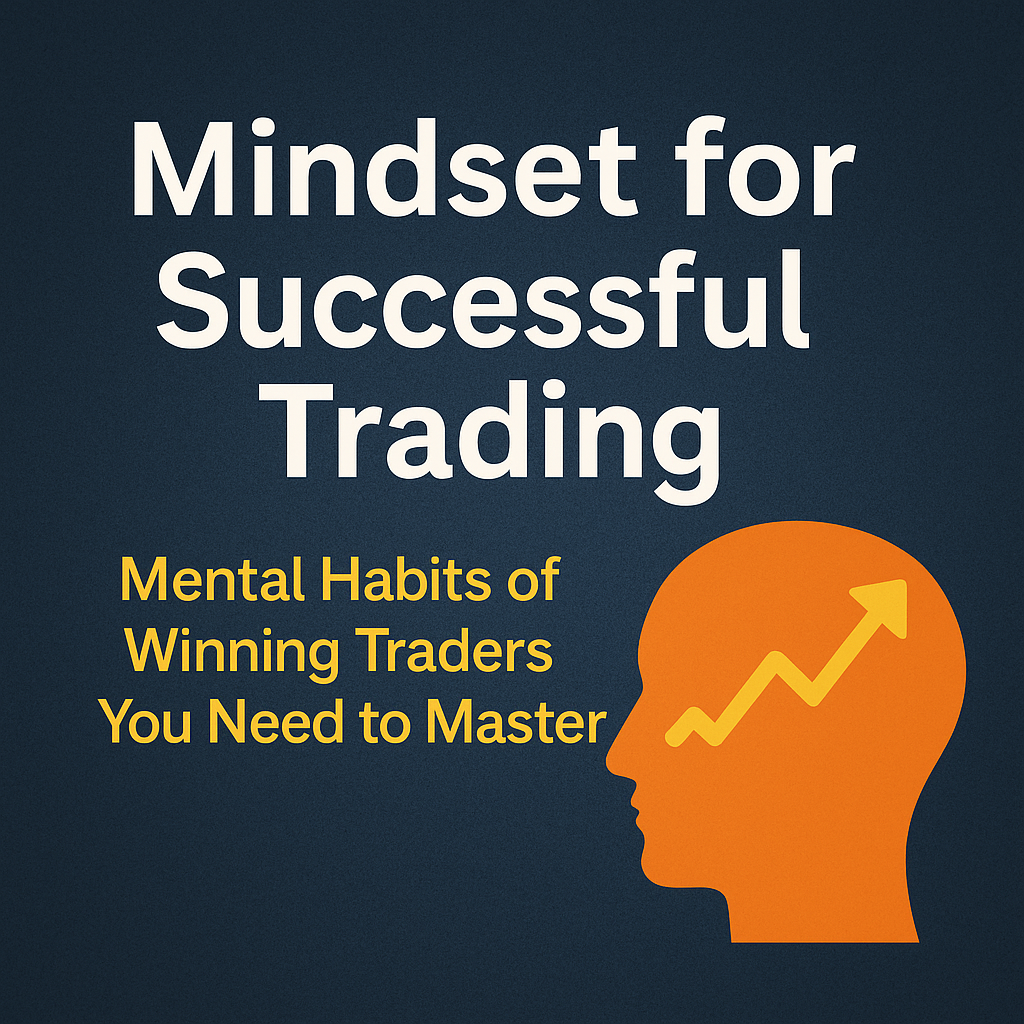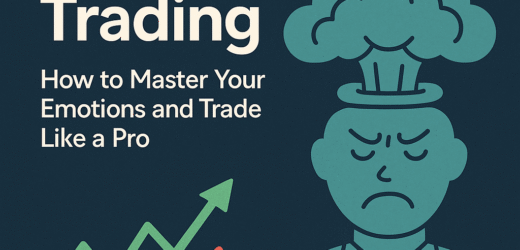Trading is more than just charts, strategies, or economic news. At its core, trading is a psychological game. Thousands of traders enter the market with solid plans, yet few walk away with consistent profits. What separates the winners from the rest? The answer: mindset.
Why Mindset Matters More Than Strategy
A sound trading plan is only as good as the mind that executes it. Without discipline, patience, and emotional control, even the best strategies fail. Your mindset governs how you respond to losses, missed opportunities, drawdowns, and the temptations of impulsive trades.
Common Misconceptions About Trading Success
- “I need the perfect strategy.”
- “Once I’m profitable, emotions won’t matter.”
- “Discipline comes naturally to good traders.”
These myths mislead new traders. The truth is that psychological discipline must be developed intentionally, regardless of your skill or strategy.
Key Traits of a Successful Trader’s Mindset
Patience and Discipline
Successful traders wait for high-probability setups. They don’t chase trades or overtrade out of boredom. Discipline allows them to follow rules and stick to a plan, even when it’s emotionally difficult.
Emotional Control and Self-Awareness
Self-awareness helps traders notice emotional triggers fear, greed, anger before they influence decisions. Emotional control prevents them from panicking during volatility or revenge trading after a loss.
Adaptability and Open-Mindedness
Markets are dynamic. Stubborn traders fail. Successful traders adapt, learn, and pivot when the market conditions change. They never fall in love with a trade or an idea.
How Fear and Greed Sabotage Trades
Understanding Cognitive Biases
Fear and greed are primal emotions. In trading, they manifest as:
- Fear of Missing Out (FOMO): Chasing late trades.
- Loss Aversion: Cutting winners early or letting losers run.
- Overconfidence: Increasing size after a win without logic.
Understanding these biases is the first step to overcoming them.
Examples of Emotion-Driven Mistakes
- Entering a trade because others are talking about it
- Closing a position prematurely out of fear
- Ignoring stop-losses in hopes of a bounce
Each of these reflects a mindset that lacks discipline or clarity.
Building Mental Resilience in Trading
The Role of Mindfulness and Meditation
Mindfulness practices can enhance focus, reduce anxiety, and improve reaction time. Many top traders incorporate breathing exercises or short meditations into their pre-market routine.
Reframing Losses as Feedback
Losses are part of trading. What matters is how you respond to them. Resilient traders treat losses as data, not personal failures. They review, adjust, and grow stronger.
Creating a Trader’s Routine and Mindset Rituals
Pre-Market Preparation Habits
- Reviewing key economic news
- Analyzing overnight price action
- Visualizing execution under different scenarios
These routines prepare the mind for discipline and focus.
Trade Journaling and Post-Analysis
A journal isn’t just for stats it’s for mindset. Record:
- What you were thinking before the trade
- Emotional state during the trade
- Lessons learned
Patterns emerge that reveal psychological weaknesses and strengths.
Developing Confidence Without Arrogance
Handling Winning Streaks and Overconfidence
Confidence is built through consistency, not luck. After a winning streak, it’s crucial to remain grounded. Overtrading or overleveraging after a win is a sign of emotional immaturity.
Staying Grounded During Drawdowns
Drawdowns are inevitable. Emotionally mature traders reduce size, re-evaluate plans, and don’t let ego dictate recovery trades.
The Psychology of Risk Management
Position Sizing and Risk Tolerance
Risking more than you’re comfortable with leads to emotional decisions. Proper position sizing keeps your mind calm and objective.
Letting Probabilities Guide Decision-Making
Trading is a game of probability, not perfection. Accepting that some trades will lose and that your edge plays out over time helps neutralize emotional swings.
Tools to Strengthen Your Trading Mindset
Trading Simulators and Mindset Exercises
Use simulators to test how you emotionally respond to winning/losing streaks. Practice discipline without financial pressure.
Recommended Books and Courses
- Trading in the Zone by Mark Douglas
- The Daily Trading Coach by Brett Steenbarger
- Atomic Habits by James Clear (for habit formation)
Common Mindset Traps and How to Overcome Them
Revenge Trading and Impatience
Revenge trading is emotional sabotage. The best cure is to step away, review the mistake, and return with objectivity.
Chasing Setups and FOMO
Fear of missing out leads to low-quality trades. Remind yourself: “There will always be another trade.” Clarity beats chaos.
FAQs on Mindset for Successful Trading
Can anyone develop a trading mindset?
Yes. Mindset is a skill that can be trained, just like chart analysis or strategy development.
How do I stay disciplined during losses?
Use rules-based systems, reduce trade size, and focus on the long-term performance, not individual outcomes.
Is trading more psychology than strategy?
Absolutely. Execution is psychological. Even the best strategies fail in the hands of an undisciplined mind.
How long does it take to develop a trader’s mindset?
It varies, but with deliberate practice and journaling, most traders notice a shift within 3–6 months.
What’s the best way to control emotions in trades?
Pre-set rules, reduced risk per trade, and practicing mindfulness help prevent emotional decisions.
How do professional traders think differently?
They think in probabilities, not certainties. They are process-driven, emotionally neutral, and relentlessly consistent.
Mind Over Market: Your Edge in Trading
The true edge in trading isn’t a secret strategy or an expensive indicator — it’s the mind using it. Developing the mindset for successful trading is your most valuable investment. It governs every decision, every entry, and every exit. Cultivate discipline, control emotions, and focus on long-term growth.
When you master your mind, you master the market.




